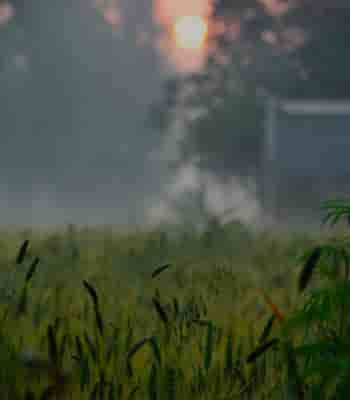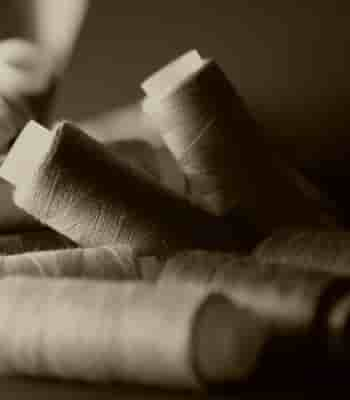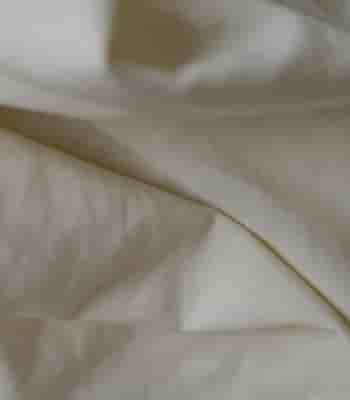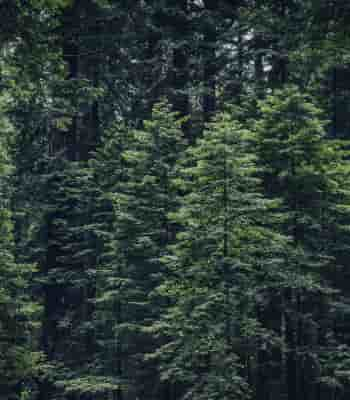
Fibres We Use
Our responsibly sourced collection substitutes conventional
raw
materials with more responsible alternatives.
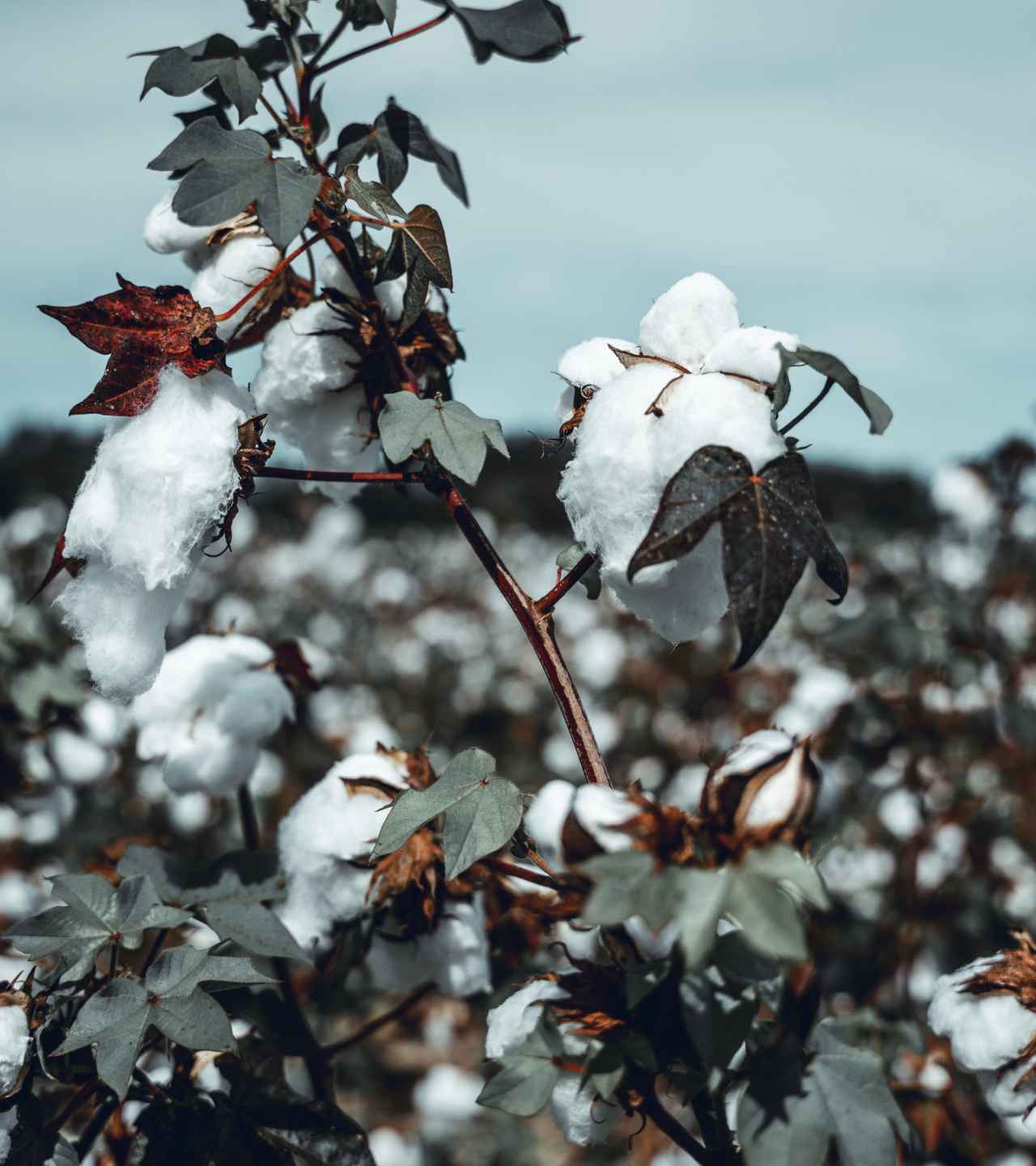
Plant-Based
Fibres We Use
Plant-Based Fibres
Across plant based fibres, we have identified initiatives that are addressing agricultural practices with the aim to improve labour standards, soil health, water efficiency and biodiversity.

‘More responsible cotton’ includes Better Cotton, recycled cotton and organic cotton.
Better Cotton Initiative
We are committed to improving cotton farming practices globally with Better Cotton.
Better Cotton’s mission is to help cotton communities survive and thrive, while protecting and restoring the environment. Better Cotton trains farmers to use water efficiently, care for soil health and natural habitats, reduce use of the most harmful chemicals and respect workers’ rights and wellbeing. Better Cotton is sourced via a chain of custody model called mass balance. This means that Better Cotton is not physically traceable to end products, however, Better Cotton Farmers benefit from the demand for Better Cotton in equivalent volumes to those we source.
Phase Eight is committed to sourcing 80% of our cotton as ‘more responsible cotton’ by 2025.
Recycled Cotton
Working closely with our supply chain partners we have crafted jeans using cotton collected from factory offcuts of our previous pieces. This process uses waste that would have otherwise be thrown away and turns it into new fabric.
The fabric offcuts are mechanically recycled, broken down into fibres and mixed with a small amount of virgin fibre which add to its longevity by increasing strength and quality. As the fabric offcuts have already been dyed, this process utilises water-saving washing and dyeing techniques that, combined with offsetting new raw materials, contribute to its low environmental impact. We have also begun to use removable shank buttons with the aim of having a circular garment that can be easily broken down to be recycled again in the near future.
Linen
Thought to be one of the oldest textile fibres in the world, linen is a natural fibre derived from the flax plant. It’s highly sustainable as the cultivation of flax requires no fertilisers, herbicides or pesticides and no irrigation to grow it only needs healthy soil, sunlight and rainfall. Flax encourages biodiversity where it’s grown and is waste-free, as all parts of the plant can be used for textiles, food, paper and bio-oils. As a natural fibre, linen is continually renewable so the fibre source can be replenished and harvested again and again. We love it as a fabric as it is durable, breathable, long-lasting and softens with time – ageing beautifully. Find out more about linen here.

Manmade Cellulosic
Fibres
Responsible Viscose
Viscose is luxuriously soft and drapes beautifully, a man-made cellulosic fibre, it originates from wood so its production has a high risk of contributing to deforestation, destroying precious ecosystems and biodiversity, putting species, communities and our climate at risk.
Eliminating ancient and endangered forests from our supply chains is an important first step and our work to substitute generic viscose with sustainable alternatives has been informed by Canopy’s Hot Button Ranking report.
Alongside eliminating deforestation, responsible chemical management plays an equally important role in responsible viscose production. The fibre production process – where the wood pulp is converted into fibre – is chemically intensive and without robust responsible production systems, the pollution of chemicals in wastewater and air emissions can harm workers and local communities.
Our nominated responsible viscose producers are LENZING™ ECOVERO™, LivaEco by Birla and FSC® viscose:

LENZING™ ECOVERO™ fibres are made with at least 50% less carbon emissions and water consumption **Compared to generic (unbranded) viscose. Results based on LCA standards (ISO 14040/44) and available via Higg MSI (Version 3.7). LENZING™ and ECOVERO™ are trademarks of Lenzing AG.
LivaEco by Birla
Sourced from FSC certified forests, LivaEco by Birla Cellulose™ production has low environmental impact with low water consumption and low carbon emissions with fully traceability verification at each stage of production. You can find out more here
FSC® viscose
FSC works to take care of the world’s forests by meeting the social, ecological, and economic rights and needs of the present generation without compromising those of future generations. Responsible forest management, as promoted by FSC, maintains and enhances biodiversity and ecological processes. It aims to protect the rights of workers, communities, and Indigenous Peoples while respecting the economic viability of forest management operations. FSC’s primary remit is focused on the responsible cultivation of forest-based materials, so we only work with pulp dissolving mills who follow industry best practice standards to ensure the responsible management and treatment of chemicals. Find out more here.

Synthetic Fibres
Synthetic Fibres
Although synthetic materials provide key performance qualities, we are focused to reduce our reliance on virgin synthetic yarns, instead using recycled materials that have used pre and post-consumer waste that would have otherwise ended up in landfills. We know recycled materials are not a perfect solution and we are constantly looking for ways to reduce their impact.
Recycled Polyester
We continue to replace virgin polyester with recycled polyester, lowering our dependence on fossil fuels and driving down our carbon footprint while regenerating existing materials.
Currently, the recycled polyester we use is made from mainly PET plastic bottles but can also be made from other post-consumer plastics, such as ocean waste or from pre-consumer waste such as factory fabric off cuts.
Although there are positives to using this fibre within our collections, we know that recycled polyester isn’t a perfect solution.
Like the virgin material, recycled polyester still releases microfibres during washing, which make their way into water streams and the ocean.
Depending on the cleaning instructions, we suggest keeping washing to a minimum and using a GUPPYFRIEND® washing bag to capture any microfibres. Find out more in our product care guide here
Recycled Sequins
Styles embellished with sequins have always played an important role in our collections and will always be a sure-fire way to lift your spirits in any season. But we know pieces with sequins can be troublesome: the way they’ve been made, their maintenance and overall limited circularity.
This is something we’ve been working with our longstanding suppliers to overcome and although we aren't totally there yet, we are heading in the right direction and this season features pieces with sequins made from post-consumer recycled materials.
Conventionally made from petroleum-based virgin plastic, our transition to recycled PET sequins enables us to move away from fossil fuel derived materials while diverting waste away from landfill. The quality of our pieces plays a crucial role too, helping us to mitigate the loss of sequins during wear.
We know this is far from a perfect solution, but as innovation evolves we are committed to adopting the best possible solutions to maintain your sparkle with as little impact as possible on the planet.

Animal Derived
Materials
Addressing issues related to traceability, animal welfare, land use and loss of biodiversity, as well as the preservation of farmer and local community prosperity, remains a key focus for us.
To learn more, please read our Animal Welfare Policy.
Reclaimed Feather and Down
We utilise feather and down reclaimed from products at the end of their lifecycle in our coats, ensuring they retain a warm, soft and supple feel. Our reclaimed feather and down are certified to third-party independent standards, verifying the source.

Leather Working Group
By 2025,100% of our leather will be sourced from LWG-certified tanneries.
We are committed to supporting responsible leather manufacturing across the globe and that is why we are proud members of the Leather Working Group (LWG). It aims to improve the leather manufacturing industry by creating alignment on environmental priorities, bringing visibility to best practices and providing suggested guidelines for continual improvement.

